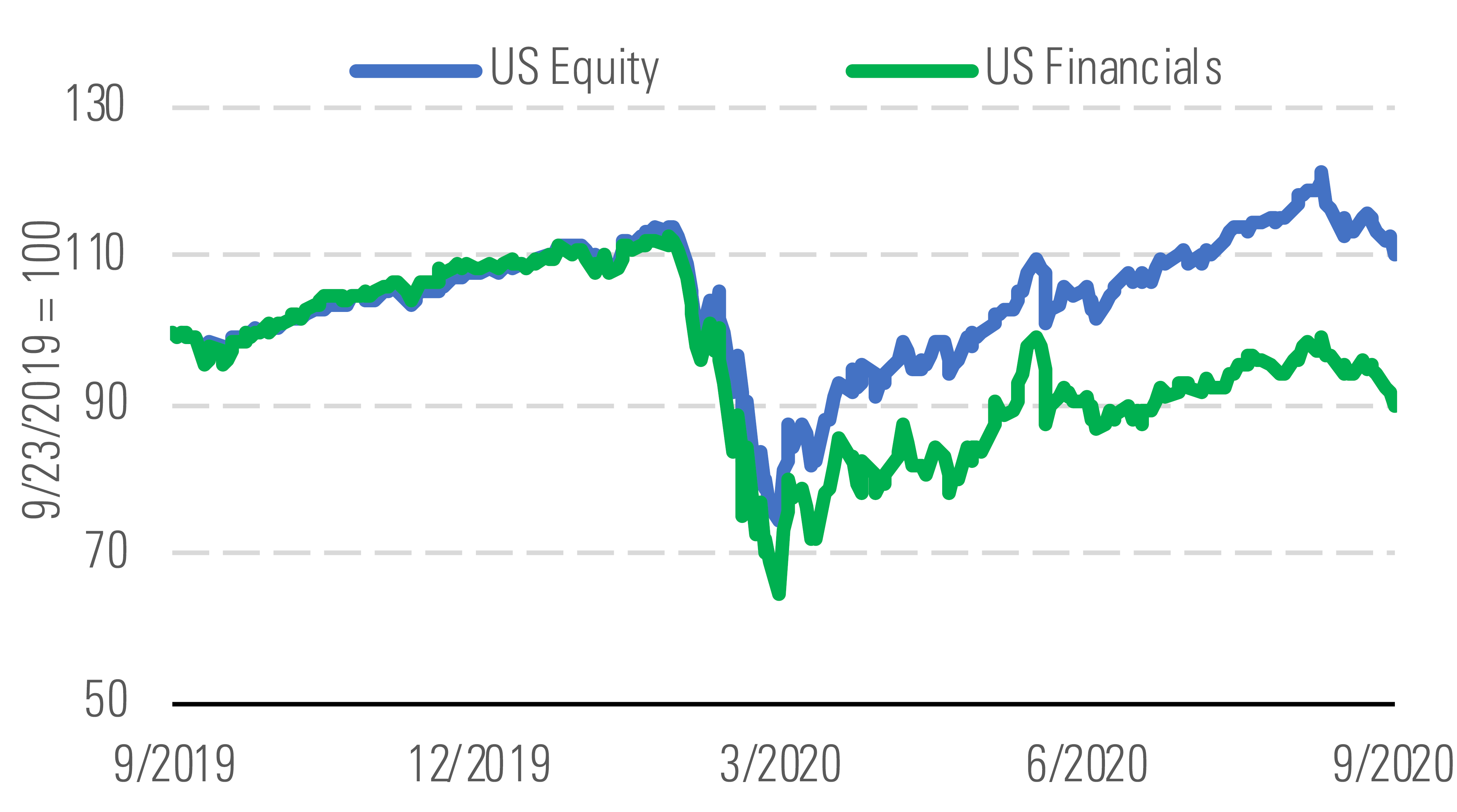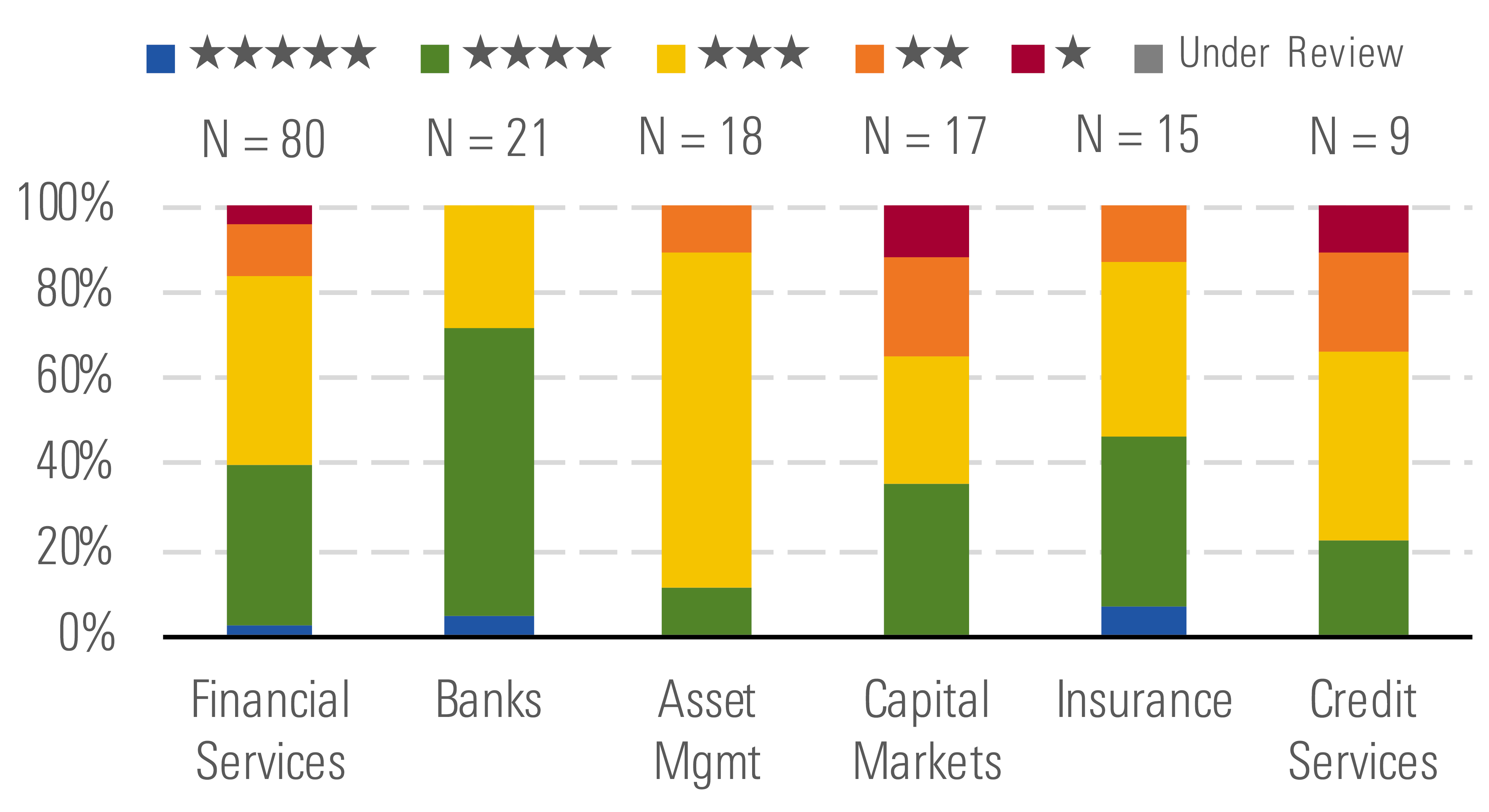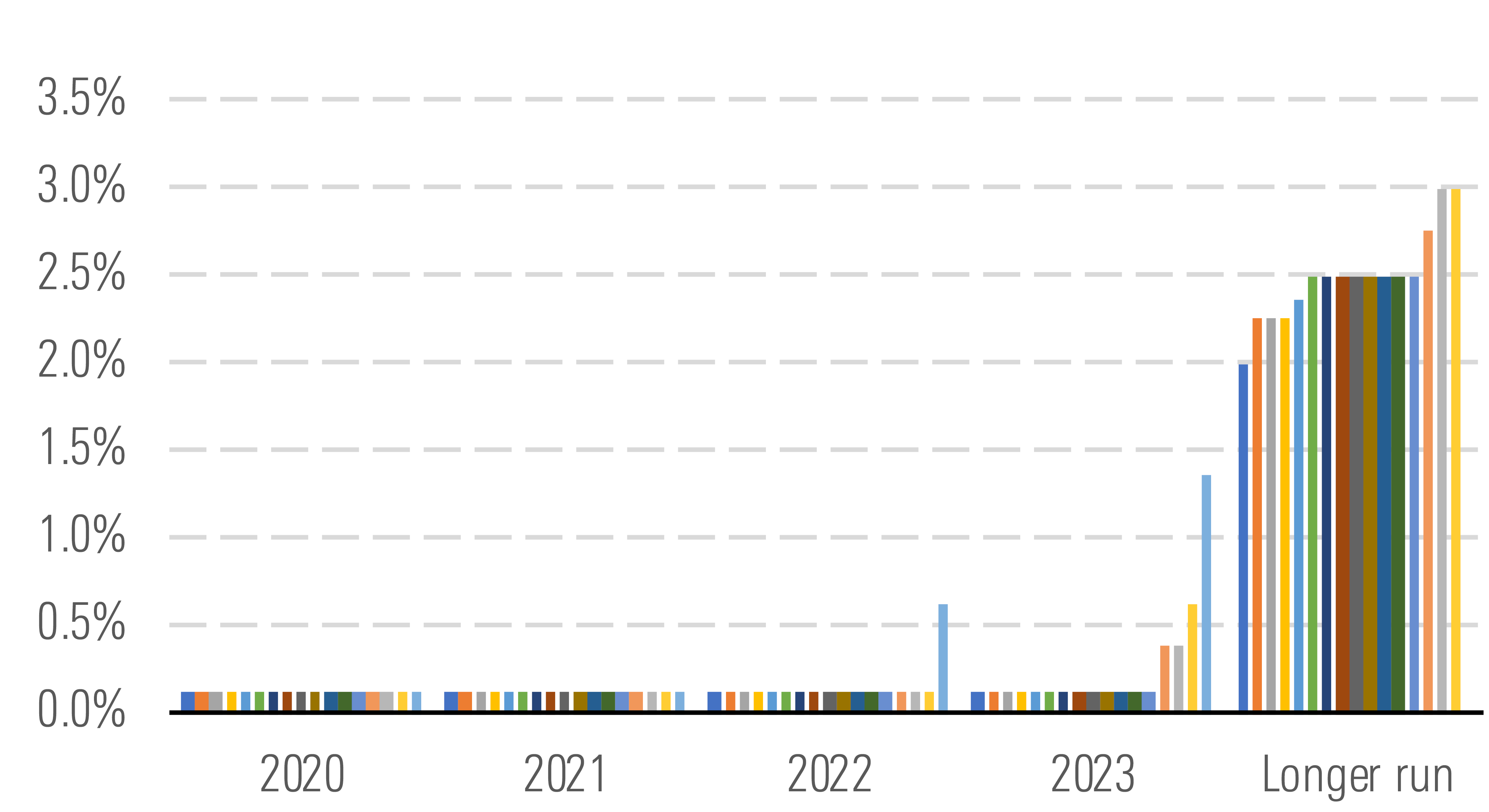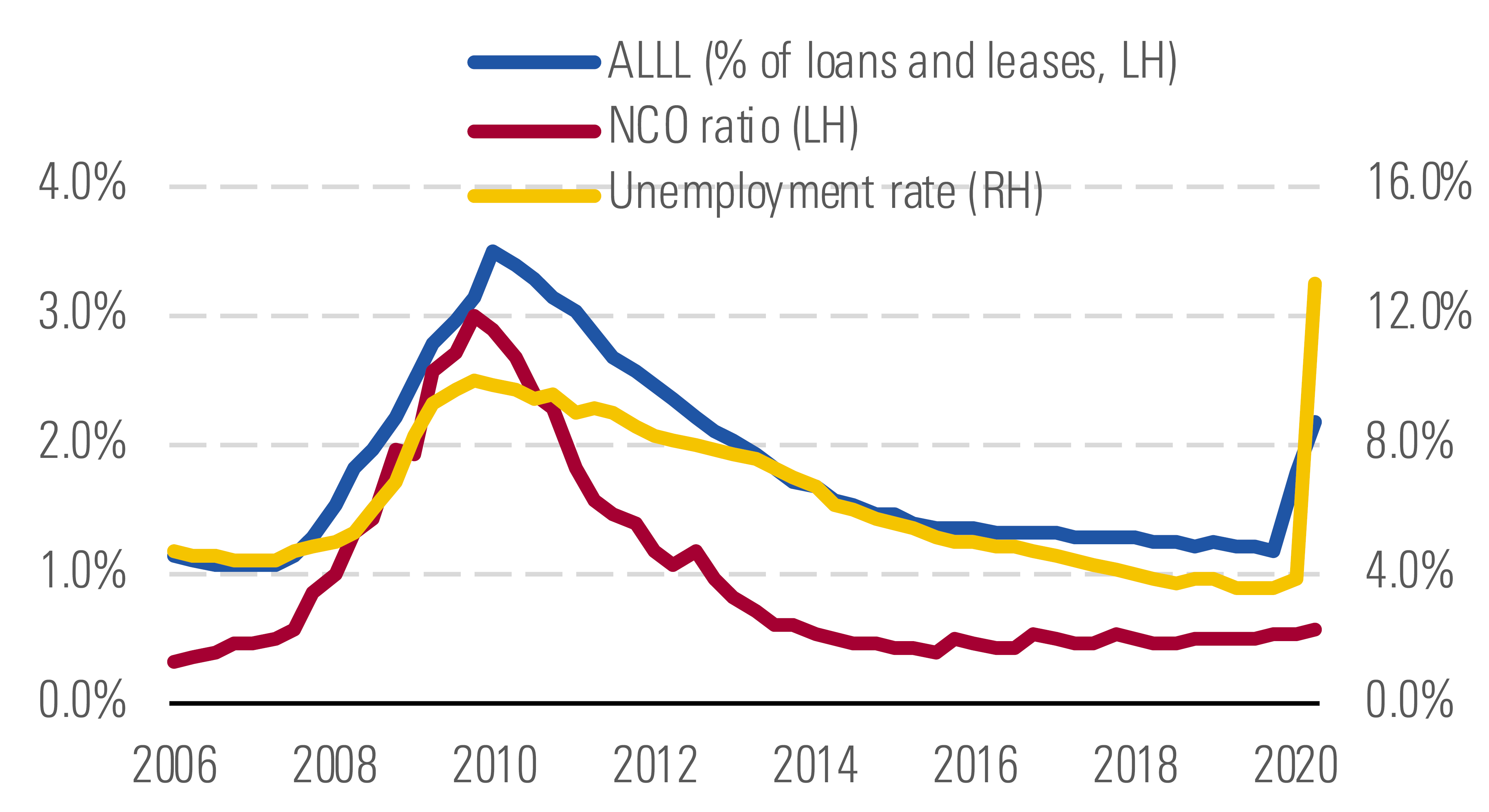Banks Still Look Cheap
Some high-quality financial services firms are trading at decent discounts.
The Morningstar US Financial Services Index has significantly underperformed the Morningstar US Market Index over the previous year, down 10.2% compared with up 10.3%. In the previous quarter, the U.S. financial sector has had stagnant performance, up 0.8% compared with the market, which is up 5.1%. After the recent increase in stock prices, the median North American financial sector stock trades at a 15% discount to its fair value estimate compared with about a 30% discount at the end of the first quarter of 2020. While we assess that many financial sector stocks are fairly valued, we see some large discounts in highly cyclical stocks and decent discounts in some high-quality companies.

Financials are lagging the overall market. - source: Morningstar

Besides banks, most financials are fairly valued. - source: Morningstar
We continue to believe the most undervalued industry in the North American financial sector is banks. For banks, two of the primary drivers of their valuation are the interest-rate environment and loan losses. Interest rates will likely stay low for an extended period. According to the U.S. Federal Open Market Committee’s dot plot from September 2020, most members believe the federal-funds rate should stay in the 0% to 0.25% range through 2023. While banks have had elevated loan-loss provisions year to date, loan charge-offs have remained muted. If heightened government stimulus doesn’t continue, we expect charge-offs to substantially increase, as unemployment remains high. That said, we believe that banks have enough capital to survive these medium-term negatives and that they can be suitable for long-term investors.

Near-zero interest may last through 2023. - source: Morningstar

Unemployment Should Pull Charge-Offs Up in Coming Quarters. - source: Morningstar
Outside of banks, we see fewer bargains in the financial sector. The online brokerages and financial advisory-focused investment banks have relatively attractive valuations. However, earnings for online brokerages may be depressed for years from lower net interest income, while the financial advisory investment banks should soon experience a dry spell of merger advisory revenue. Other financial sector firms with large discounts usually have company-specific risks, such as riskier-than-peer balance sheets or the market is questioning whether a new business strategy will work out.
Top Picks
American International Group AIG Star Rating: ★★★★★ Economic Moat Rating: None Fair Value Estimate: $59 Fair Value Uncertainty: High
AIG CEO Brian Duperreault was a primary architect behind AIG-peer Chubb's strong franchise that has generated industry-leading underwriting margins. He pledged that AIG would generate an underwriting profit in 2019, and the company achieved that goal. With steady improvement in underwriting results in recent quarters and recently unveiling a plan to take out $1 billion in costs by 2022, AIG is gradually trending toward peer results, in our opinion. However, in the near term, progress will likely be obscured by coronavirus-related claims on the property/casualty side of the business, and capital markets may put pressure on AIG’s life insurance operations.
Berkshire Hathaway BRK.B Star Rating: ★★★ Economic Moat Rating: Wide Fair Value Estimate: $228 Fair Value Uncertainty: Medium
We are impressed by Berkshire Hathaway's ability to generate high-single- to double-digit growth in book value per share. Believing it will take some time before Berkshire succumbs to the impediments created by the size of its operations, and that the ultimate departure of CEO Warren Buffett and Vice Chairman Charlie Munger will have less of an impact on the business than many believe, we are always looking for opportunities to put money to work in the name. Berkshire currently has a ton of cash on hand and a disciplined share-repurchase program in place, making it an ideal defensive name in a slowing economy or a down market.
Truist Financial TFC Star Rating: ★★★★ Economic Moat Rating: Narrow Fair Value Estimate: $51 Fair Value Uncertainty: High
We believe Truist is in a unique situation. The bank recently underwent a major merger of equals before the COVID-19 downturn started, which may explain why the name trades at a larger discount. However, recent commentary from management about its ability to keep cost synergies on pace, BB&T's historically strong credit underwriting, and the combined bank's strong overall banking franchise lead us to have confidence that the bank can withstand the upcoming downturn and that it will emerge stronger once it's over. As such, we see an attractive risk/reward for Truist's shares at today's prices.

/s3.amazonaws.com/arc-authors/morningstar/75bbf764-3b6f-4f5a-8675-8f9488c74c04.jpg)
/cloudfront-us-east-1.images.arcpublishing.com/morningstar/T5MECJUE65CADONYJ7GARN2A3E.jpeg)
/cloudfront-us-east-1.images.arcpublishing.com/morningstar/VUWQI723Q5E43P5QRTRHGLJ7TI.png)
/d10o6nnig0wrdw.cloudfront.net/04-22-2024/t_ffc6e675543a4913a5312be02f5c571a_name_file_960x540_1600_v4_.jpg)
:quality(80)/s3.amazonaws.com/arc-authors/morningstar/75bbf764-3b6f-4f5a-8675-8f9488c74c04.jpg)